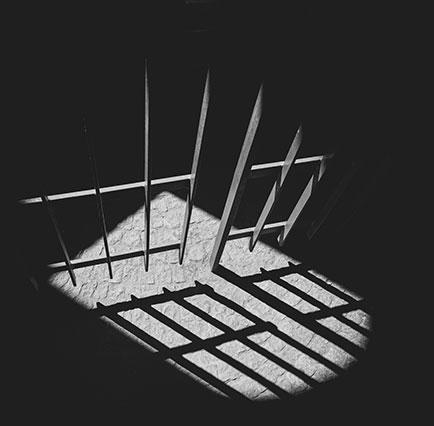You are here
Cassation Court upholds ruling in 2011 murder case
By Rana Husseini - Oct 29,2015 - Last updated at Oct 29,2015
AMMAN — The Cassation Court has upheld a March Criminal Court ruling referring a man to a psychiatric institution after finding him partially not responsible of murdering two men in September 2011.
The defendant was convicted of shooting to death Salem Eid, 81, and his son Saleh, 45, with an automatic weapon.
The court said four months before the incident, the defendant’s father died during a visit to the victims’ house.
“The defendant, who suffered from mental illness (psychosis), believed that the victims poisoned his father over a land dispute and he decided to kill them in revenge,” the Criminal Court added.
On September 11, 2011, the defendant headed to the victims’ home armed with an assault rifle and shot and killed them.
He fled from the scene and was later arrested by police, who found an automatic weapon in his possession, according to court transcripts.
A ballistics test at the crime lab confirmed that the bullets were fired from the weapon found on the defendant, the court added.
The Criminal Court decided in March to change the original charge of premeditated murder to manslaughter and declared the defendant partially not responsible for his actions since he suffered from psychosis.
“It was evident to us from the findings of government physicians that the defendant suffered from psychosis when he committed the murders and is still suffering from psychosis and unaware of his actions; therefore, he should remain at a mental institution until he is no longer a threat to society,” the court ruled.
Psychosis occurs when a person loses contact with reality. The person may have false beliefs about what is taking place, or who one is (delusions) or see or hear things that are not there (hallucinations), according to the US national Library for Medicine.
However, the attorney general appealed the verdict demanding a tougher punishment for the defendant.
But the Cassation Court upheld the Criminal Court’s ruling, saying it falls within the law and that the proceedings were proper and the sentence the defendant received is satisfactory.
The Cassation Court tribunal comprised judges Mahmoud Ababneh, Basel Abu Anzeh, Yassin Abdullat, Mohammad Tarawneh and Basem Mubeidin.
Related Articles
AMMAN — The Court of Cassation has upheld an October Criminal Court ruling sentencing a man to life in prison after convicting him of murder
AMMAN — The Court of Cassation has upheld a February Criminal Court ruling, sentencing a man to eight years in prison after convicting him o
AMMAN — The Court of Cassation upheld a December Criminal Court ruling sentencing a man to life in prison after convicting him of murde

















